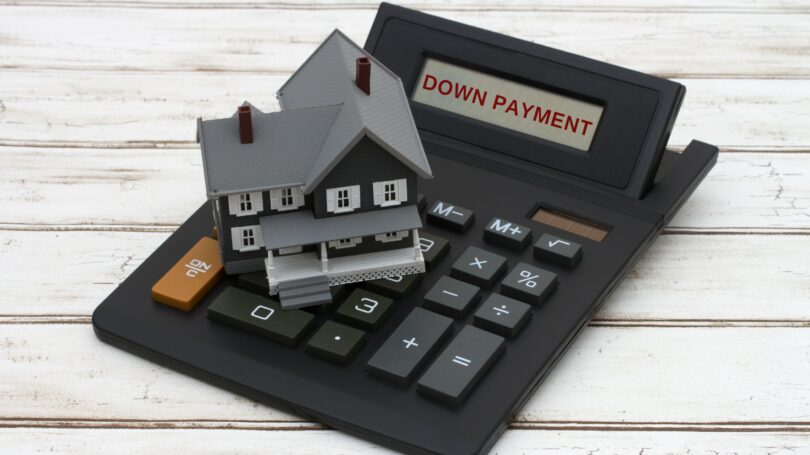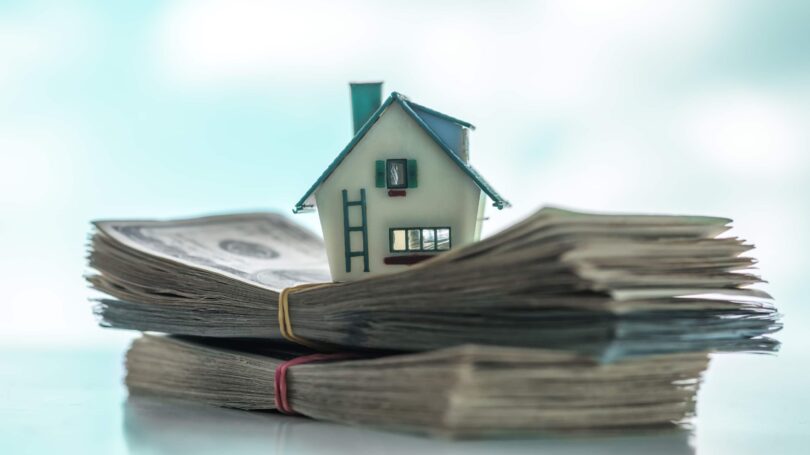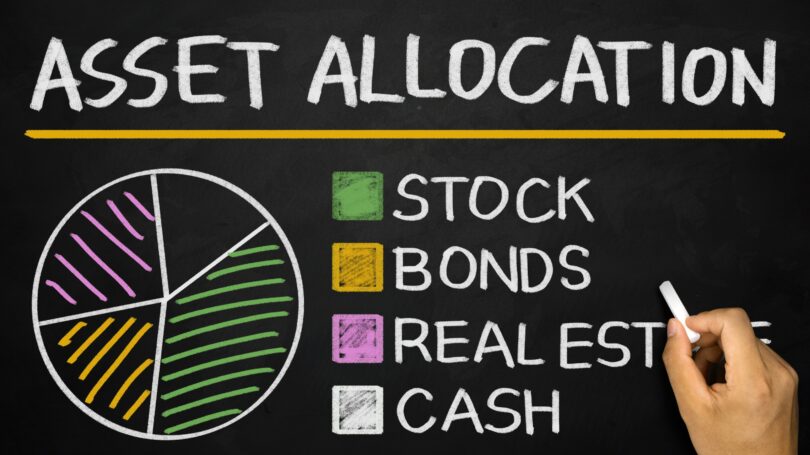What was true 30 years ago isn’t necessarily true today. Few people would agree that cassette tapes produce the best possible sound or legwarmers are the height of fashion. And like technology, fashion, cultural values, and just about everything else in life, financial wisdom changes over time.
We all carry around certain financial assumptions we learned from our parents, our mentors, or that we read somewhere once upon a time. But those assumptions may no longer be true – or at least, not unquestionably true.
Here are 12 financial assumptions that are more nuanced than old-school conventional wisdom suggests, along with tips to know what’s right for your unique finances and goals.
1. More Education Is Better

Today’s Truth: More education is sometimes better, depending on your dream job and career path.
A college degree opens doors, and some careers require a master’s or other advanced degree. But higher education isn’t for everyone, and attaining more degrees don’t always make financial sense.
Student loan debt is now the second-highest form of debt in the United States after mortgage debt. It has surpassed both auto loan debt and credit card debt, with over $1.52 trillion owed in 2018, according to Forbes. That comes out to an average of $37,172 per graduating student. It’s a financial epidemic.
Young adults who don’t know what they want to do with their lives should consider taking a gap year before enrolling in college, picking a major, and trying to figure out how to pay for a college degree. College has become outrageously expensive; the average cost of one year’s tuition and fees at a private college for the 2018 to 2019 school year is $35,676, per data from U.S. News & World Report. Even if that cost stays frozen for the next four years – which it won’t – that would come to $142,704 over four years.
And while a college degree is useful across many fields, master’s and other advanced degrees are not. They are a very specific means to an end. My wife wanted to be a school counselor, for example, so she earned the requisite master’s degree in school counseling. Young adults should pursue advanced degrees only when they know what they want to do for a living and an advanced degree specifically helps on that career path.
Before deciding on an education path, do plenty of soul-searching. Then go about finding ways to reduce or avoid student loan debt entirely.
2. You Should Pay Off Your Student Loans Before Buying a Home

Today’s Truth: The decision to buy a home depends on your market, finances, and plans, not one single factor like student loan debt.
Total student loan debt has doubled over the last decade, while homeownership rates among young adults have plummeted. In 2004, the homeownership rate for adults under 35 sat at 43.6%. That fell to 34.3% by 2017, although it has risen slightly since. With so much student loan debt, it can be difficult for young adults to qualify for a mortgage. In addition to skewing debt-to-income ratios, student loans impact borrowers’ credit scores.
There are plenty of good reasons to rent (more on those shortly), but if your only reason is student loans, start running the numbers. Over time, homeownership can not only save you money on your monthly housing payment, but it can also help you build wealth. Look no further than a 2018 Harvard study that found that middle-aged homeowners have an average net worth 60 times higher than middle-aged renters.
It sometimes makes more sense to put money toward a down payment rather than paying off existing debts. After buying a home, you can always decide whether to pay off your student loans or mortgage first, or you can pay off neither right away and instead invest money elsewhere.
There’s no one-size-fits-all answer for the best place to put your money, just as there’s no one-size-fits-all answer to whether you should buy or rent a home.
3. Buying Is Always Better Than Renting

Today’s Truth: Buying sometimes often makes more financial sense, but it depends on a wide range of factors.
When you buy a home, you take an initial loss. That’s because buyers and sellers alike spend thousands of dollars on closing costs, including lender fees, title fees, real estate agent fees, and transfer taxes.
Over time, homeowners typically save money compared to renters, in the form of lower monthly payments, home appreciation, and gradually shrinking mortgage balances. But the process takes years, and how many years it takes depends on factors such as local market home values, rents, interest rates, and repair costs. That means that homeownership usually makes sense only for people who plan to stay in one home for at least a few years.
Further, homeownership sometimes involves unexpected costs. The roof needs to be replaced, or the furnace, or the wiring. You wake up to a normal day, and by lunchtime, you have a $5,000 bill you need to pay immediately. Beyond location stability and staying put for a while, homeowners also need financial stability. They need a much larger emergency fund than the average renter to cover sudden and unexpected home-related costs.
Before you rush into homeownership on the assumption that it’s the right financial move, read up on renting versus buying a home and the nuanced factors that go into the decision.
The assumption that “buying is better” doesn’t only apply to housing; it also extends to nearly everything in our lives. In most cases, it makes far more sense to rent high-end items you only plan to use once or twice, such as a wedding dress or high-end jewelry. If you want to swap out your car every two years, it often makes more sense to lease than to buy. Renting is sometimes better than buying, and anyone who tells you otherwise is selling something.
4. Your Home Is an Investment

Today’s Truth: Your home is an expense, and you should treat it accordingly.
A rental property is an investment because you buy it to generate cash flow and a return. A primary residence is an expense; it costs you money every month on the “Housing” line in your budget. Any equity you might have in it exists only on paper and is not investable to generate income or additional wealth.
Homeowners justify spending extra on a home – when both buying and renovating – by reassuring themselves, “I’m not spending this money; I’m investing it!” But this assumption is self-indulgent and self-deluding.
Consider Remodeling Magazine’s 2019 report on the average return on investment for common home improvements. They measure ROI as the percentage of a renovation’s cost that’s recovered through a higher home sale price. In their 2019 report, exactly zero home improvements delivered a positive ROI; every single one cost more than it returned in higher values.
The more you spend on housing, the less you can funnel into true investments, such as stocks, bonds, and real estate investment. Unless you house hack or do a live-in house flip, housing is an expense, not an investment.
5. You Should Spend 25% – 30% of Your Income on Housing

Today’s Truth: Spending less is better for your long-term wealth, but some markets require more. When deciding what to spend on housing, remember that budgeting is a zero-sum game.
In an ideal scenario, you’d spend 0% of your income on housing by either house hacking or taking a job that provides free housing. However, reality is rarely ideal.
In some wildly expensive markets like San Francisco and Manhattan, single renters may not be able to find even a room for less than 50% of their net income. Housing costs are a problem for younger adults especially; USA Today reports that today’s 30-year-olds have spent an average of 45% of their total lifetime income on rent.
What people so often ignore about budgeting is that it’s a zero-sum game. If you spend more on housing, you have less to spend on transportation, food, entertainment, clothes, and investing to build wealth. That makes housing part of a larger lifestyle equation. A Manhattanite who spends 50% of their income on rent likely forgoes a car, so instead of spending $9,576 a year on transportation like the average American, they may spend $200 on public transportation.
I spend almost nothing on housing, but I spend a lot more than the average American on travel. There’s no magical percentage to spend on housing, so instead, look at your budget holistically, set your savings rate first, and then work backward to create a budget based on your priorities.
6. You Should Put at Least 20% Down on a Home

Today’s Truth: Your money may serve you better elsewhere, and delaying homeownership to save a higher down payment is often counterproductive.
There’s a valid reason for the recommended 20% threshold for a down payment down on a house: If you put down at least 20%, you can avoid paying private mortgage insurance (PMI), which is effectively lost money. And in the case of FHA loans, that mortgage insurance doesn’t go away, even after you pay the principal balance down to below 80% of the property’s value.
But as irksome and wasteful as PMI is, sometimes it makes sense to just suck it up and make a smaller down payment.
First, if it would take you another four years of saving money to put together a 20% down payment, but you have enough for a smaller down payment now, it seems silly to sit by and wait when you’re ready to enter the housing market. Besides, there’s no telling what home prices will be in four years from now. What if you scrimp and save more money, only to find that home prices are 14% higher by then, and you still don’t have enough money?
Second, as mentioned earlier, your home is not an investment. Cash that you put into it is cash that can’t be invested in stocks, bonds, or investment real estate, which can produce passive income for you. Let’s say you invest an extra $50,000 in a down payment to reach the 20% threshold and avoid $2,000 a year in PMI and extra interest. At an 8% annual return, that $50,000 would have earned you $4,000 a year if you’d invested it elsewhere. So you save $2,000 a year on your mortgage, but at the cost of earning $4,000 a year elsewhere.
7. You Should Put the Bare Minimum Down on a Home

Today’s Truth: This is a risky move that could have significant negative consequences. Be careful not to overleverage yourself.
At the opposite end of the financial wisdom spectrum, other homebuyers assume they should put down the bare minimum. However, that didn’t work out so well for buyers in the mid-2000s who bought with 1% to 3% down – or, in some cases, no money down at all.
If housing prices drop, homeowners who put very little down can find themselves upside-down on their mortgage. Even worse, putting down almost nothing on a home can lead homebuyers to buy more house than they can afford.
Don’t assume you can afford to buy a home just because you have 3% of the purchase price saved. You also need cash for closing costs, an emergency fund, moving, furnishings, and potential repairs. While there are plenty of ways to pull together the down payment for a home, make sure you have enough cash set aside to live comfortably in that home.
8. You Should Pay Off Your Mortgage ASAP

Today’s Truth: Paying off your mortgage early is about balancing opportunity and risk.
There are times when it absolutely, 100% makes sense to pay off your mortgage early. And there are others when it makes no sense whatsoever.
The first factor to consider is what you’re paying in interest. At a 3.5% interest rate, for example, you can effectively earn a 3.5% return by paying off your mortgage early. But you can almost certainly earn higher returns by investing that money elsewhere, such as the historical 7% to 10% returns offered by stocks.
If you’re paying 7% interest on your mortgage, that’s a different story. You may decide that a guaranteed 7% return by paying off the mortgage appeals to you more than chasing possible 7% to 10% returns elsewhere.
Another factor to consider is your age. The older you are, the less time you have to recover from losses, and the more vulnerable you are to sequence of returns risk. At 65, your risk tolerance is lower, and paying off your mortgage has a guaranteed return on investment by reducing your living expenses. At 25, however, why not chase those higher returns by investing aggressively? You have less to lose and more time to make it up.
9. You Should Keep 6 – 12 Months’ Expenses in Your Emergency Fund

Today’s Truth: Your cash reserves should be based on the stability of your income and expenses and your risk tolerance.
The median family income in 2017 was $75,938, according to the U.S. Census Bureau. Does that mean the average family should keep that much money sitting around in cash? Heck no.
Don’t get me wrong; everyone should have an emergency fund. All households need some cash readily at hand for a sudden roof replacement or unexpected job loss. But how large that cash cushion should be varies from household to household.
For households with stable 9-to-5 income and expenses that remain relatively consistent from month to month, keeping one or two months’ expenses in cash could be plenty. To keep more would be to squander the opportunity to invest and earn strong returns. Cash has a negative return every year; it loses money to inflation, historically at a loss of around 2% per year.
Households with irregular incomes or expenses should keep more in cash as a thicker buffer to ride out the fluctuations. For them, the risk of several choppy months in a row is often more serious than the risk imposed by inflation. Read up on strategies to build an emergency fund when your income is irregular if your needs are different than the average 9-to-5 employee’s.
Finally, remember that a household’s expenses should ideally be far lower than their income. A family earning $75,938 should not be spending anywhere near that much, so even if they wanted to keep 12 months’ expenses in an emergency fund, their cash target would be far, far below that number.
10. You Shouldn’t Discuss Money With Friends & Family

Today’s Truth: Talking about your financial strategies and long-term goals is a great way to learn from each other. Just don’t get specific with exact numbers, and never, ever brag.
Spouting off how much you earn or how much you spent on your car is tacky. Sharing budgeting tips or tax strategies with a friend? That’s helpful for both of you.
There’s an old adage that says, “Smart people learn from their mistakes. Wise people learn from others’ mistakes.” If we don’t discuss our experiences and financial strategies with others, we deny ourselves the chance to learn from each other’s mistakes.
I find it incredibly sad that so many people feel like they’re going it alone financially, suffering in silence and isolation. You’re not alone. Several of your friends and family members are going through similar struggles, but they’re reluctant to admit it or talk about it, just like you are.
Open the doors to start talking about money gradually. Share one of your long-term goals in an aspirational way, rather than a bragging way. Ask people for their experiences and opinions. For example, you might say, “We’re trying to tighten up our spending to save enough money to buy a house next year. It seems like you’ve done a good job with your budgeting; where were you able to cut back without losing your quality of life?”
You can share tips and ideas and hold one another accountable when you’re open to discussing money with friends and family. Just remember to never judge others and never show off financially.
11. It’s Better to Pay With a Debit Card Than a Credit Card

Today’s Truth: Like all tools, credit cards can be used constructively or irresponsibly. It’s up to you to use them wisely – or know yourself well enough to avoid them altogether.
My friend Renee travels internationally at least once a year and domestically many times a year. I’ve never known her to pay in full for her flight and accommodations. She wields travel rewards credit cards the way a magician flourishes playing cards, securing free flights or hotel stays with remarkable dexterity.
Credit cards aren’t inherently evil; they are merely tools. They can earn you money or cost you money depending on how you use them. But while you don’t need Renee’s skill to profit from them, you do need the discipline to pay your bill in full every month.
If you allow a balance to accumulate, it’s time to hit the pause button on your credit card usage. Take a pair of scissors to your cards and go back to the drawing board in your budgeting. Brush up on some of the hidden pros and cons of debit cards versus credit cards and practice discipline, whether that means paying your balance in full every month or not using a credit card at all.
12. Your Asset Allocation Should Be 100 Minus Your Age

Today’s Truth: Yes, your asset allocation should shift with age, but the “Rule of 100” is dated and simplistic. The “Rule of 120” is better, if still oversimplified.
The “Rule of 100” dictates that you should subtract your age from 100 to determine what percentage of your portfolio you should invest in stocks. The rule goes on to say that the rest should be invested in bonds. It’s nice and neat and simple. It’s also bad advice.
Life expectancies are higher today than they were a generation ago, and bond returns are lower. That means that investors should invest more in stocks, and later in life, than they did a generation ago.
A better rule would be 120 minus your age to determine your stock exposure, or 110 minus your age if you’re more conservative. This ignores other asset classes, however; I personally invest in real estate to serve a similar purpose as bonds in my portfolio. As you get older, rebalance your portfolio periodically to ease your investments into more conservative assets. But don’t be too conservative, or you risk anemic returns.
Final Word
Times change, and so does financial wisdom.
Americans are increasingly responsible for their own finances and retirement planning, and that requires questioning the financial assumptions your parents and grandparents swore by. Personal finance in today’s world is marked by nuance, not rules written in stone.
When in doubt, ask for help. Bounce ideas around with friends and family. Get feedback from informed peers in personal finance Facebook groups. Hire a financial advisor for an hour or two to get personalized advice. Ask yourself what’s best for your financial situation and goals, and act accordingly.
What financial assumptions have you questioned recently?